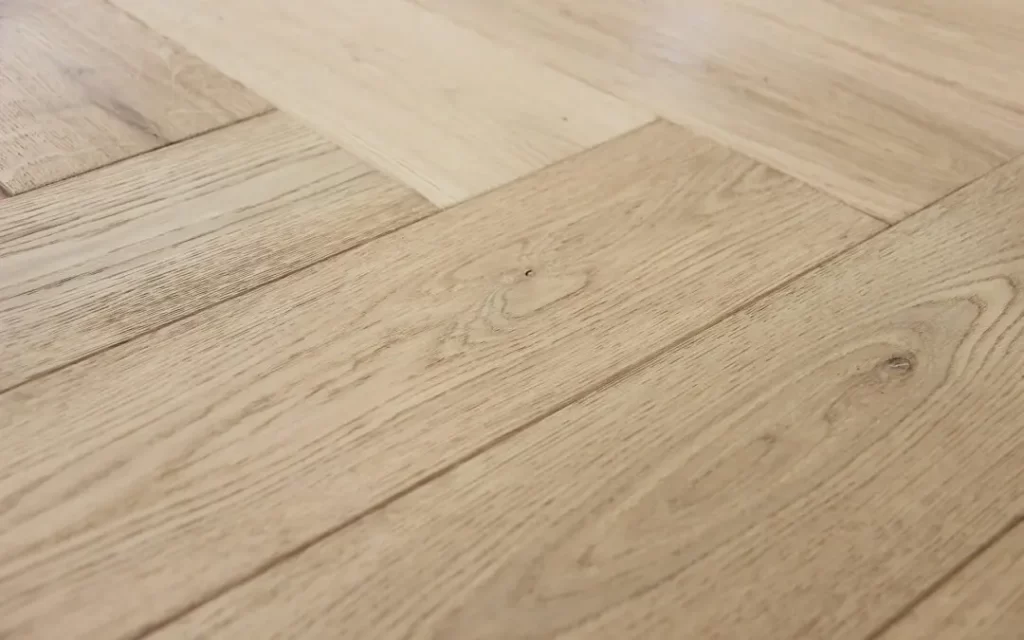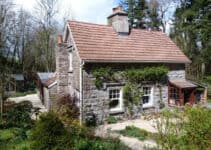If you’ve ever spent time in an old house, you might have noticed that they creak randomly, whether you’re walking over wonky flooring or even for no apparent reason.
So, why do old houses creak? There are many reasons why old houses creak. It’s most likely down to their age, as the building materials expand and contract over time. Also, things can come loose, meaning they have more movement than they’re meant to.
In this article, we’ll discuss this answer in more detail and look at some solutions to stop old houses from creaking.
Why Are Old Houses So Loud?
Old houses are loud for a load of different reasons. Of course, this ultimately depends on what we mean when we say loud.
The first issue to address is how loud old houses are in terms of outside noise. Unlike newer buildings, old houses don’t have great insulation and can also be full of small holes.
These let in outside noise (also known as noise pollution), meaning an old house seems much louder than a newer one.
But the main issue here is creaking, which can make old houses seem very loud. Creaking is generally a combination of old building materials and time-related ageing.
Also, building techniques have changed and, while the differences might not be massive, modern buildings are built in ways that can prevent a lot of creaking.
Why Do Old Houses Creak So Much?
The real question is why do old houses creak so much? Well, there are a couple of reasons that relate to one another.
Creaking typically happens in wooden building materials – you won’t find brick and stone creak too much.
The first reason old houses creak is because of the effect of heat and moisture. These cause wood to expand, and boards or beams can creak as they rub against each other.
On the flip side, the wood can creak again when everything contracts as the temperature cools again.
Another reason is a simple one: things can come loose. This is often the case with floorboards. Nails might wear away or come loose over time, allowing floorboards to move when stepped on.
Humidity can have an effect on this too. A floorboard (or the beams below it) might expand, causing the floorboard to warp. When it’s stepped on, it’ll then rub against other boards, causing the creaking sound.
Is It Normal to Hear Pipes Creaking?
Along with creaking wood, pipes in old homes can also creak. This is fairly normal in a home of any age, although it’s more common in older buildings because the pipes have been there for longer.
Creaking in pipes is usually caused by water moving through them in an irregular way. The most common issue is water hammering, which is the result of stronger momentum than normal.
But high pressure can also be a reason why pipes creak. Unlike wood, which creaks when it expands and contracts, pipes will usually creak against something.
This can be wall supports or even the joins between pipes. As mentioned, it’s not really something to be concerned about unless you’re noticing other issues with your water supply.
Why Do Floors Creak in Old Houses?
The main reason floors creak in old houses is because things have come loose, or floorboards have expanded.
Both of these issues cause wooden boards to rub against each other, which is what causes the creaking or squeaking sound.

There are numerous other reasons why floors creak in old houses, including:
· Incorrect fittings
· The subfloor settling
· Rubbing against joists
· Poorly fitted or aged nails
· Wear and tear
Many of the problems that cause creaky floors relate to age and wear and tear. Although you might find incorrect fittings in a renovated room, it’s not uncommon for nails and joists to be the same age as the rest of the house.
Unless previous owners have done some major work, most people leave joists and subfloors alone.
Is It Normal for Older Houses to Creak?
It’s perfectly normal for older houses to creak. Although wood is a strong building material, it can wear fairly quickly.
This is what usually causes creaking sounds, which is why it’s common in floors or other wood-heavy areas.
You don’t need to be concerned about most creaking noises. For example, if it’s the same stair that creaks when you stand on it, or you hear creaking noises at the same time every day, your house is probably just old.
However, if you notice fairly aggressive groaning noises, or see cracks appearing in your walls, you might want to get a specialist in.
These can be signs of subsidence, which can be very expensive to fix if left unchecked.
Why Do Old Houses Creak at Night?
Old houses creak at night due to thermal contraction. During the day, air temperature and humidity levels will go up, causing wood to expand.
As the temperature then cools again at night, the wood contracts. The expanding and contracting motion is what causes creaking.
Old houses can hold on to humidity more than newer houses, especially if they’ve been re-plastered and insulated with modern materials.
Higher humidity can cause wood to expand and contract more than low humidity, which is partly why it’s more noticeable in older buildings.
How Do You Stop a House from Creaking?
Provided you’re willing to do a bit of DIY, there are some fairly simple solutions to stop a house from creaking.
Of course, if you try these and still notice creaking, you might want to call a professional.
To stop a house from creaking, try the following:
Securing Loose Boards
A creaky floorboard is an easy one to fix, provided you can get under the top layer of flooring. All you need to do is put a couple of screws into the creaky board to hold it in place.
You could use nails instead, as both do the same job.
You can use this method on anything from a squeaky stair to underflooring. A similar solution is to go from below and drive a long screw through the floor joist into the creaky board.
This grabs it and holds it in place, which can help prevent the board from rubbing against the new nail.
Fixing Creaky Pipes
Pipes are arguably one of the less pressing creaking issues, but can be fixable if you can get to them. Depending on the age of your house, the pipes might even be fixed to the wall rather than chased inside.
Some old houses with cellars will have the pipes running across the ceiling.
Either way, wrapping the pipes in insulation can help reduce creaking noises. Similarly, fixing padding around wall supports can prevent noise when the pipes expand.
Lubricate Hinges and Fastenings
If your doors and windows are creaking, you’ll need to lubricate their hinges and fastenings. As with pipes, this is one of the less pressing creaking issues in a house. However, it’s probably the easiest to fix.
Simply buy some lubricant (silicone lubricant is best) and squirt it into the hinges and handles. Leave it to soak for 10 minutes and your doors and windows should be super quiet again.
Final Thoughts
An old creaky house is quite common and can have a certain charm that’s worth appreciating. The occasional creak or squeak from a floorboard or stair is easy to ignore, but if you have bigger issues, it’s understandable that you might want to fix them.
Bear in mind, though, that even something straightforward like fixing a floorboard can get expensive. Unless you’re confident with your DIY, it’ll be best to call in a professional.
Alternatively, learn to live with the charm of a creaky old house!



